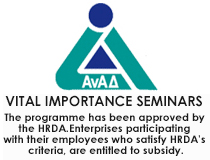Living and Operating in the Cloud: New Age Agile Digital Platforms for SME’s in Hospitality & Travel Sector

Instructor
-
 Sanjay NadkarniDirector of Innovation & Research
Sanjay NadkarniDirector of Innovation & ResearchDr. Sanjay Nadkarni is currently with Arabian Falcon Holding in the UAE. From 2009 to 2022, he was the Director of Innovation and Research and an Associate Professor at the Emirates Academy of Hospitality Management, a strategic business unit of Jumeirah Group Dubai Holding. His work encompasses research, teaching, and advisory activities.
Sanjay’s domain interests are in the convergence space of digital innovation and sustainability in the services sector. His portfolio comprises academic and applied research, advisory and consultancy assignments for corporate, government and multilateral agencies. His pedagogic practice includes visiting professorships at premier academic institutions in Asia and Europe. He is also a verified Dubai Futures Research Contributor and a Non-resident Fellow of Trends Research & AdvisoryThink Tank. The recognition of his work is reflected in the awards and citations of merit he has received.
Sanjay’s focus is on developing and co-creating applied research and strategy frameworks that have tangible impact on industry and society. He is passionate about using innovation frameworks for leveraging Industry 4.0 and democratizing AI and data science to benefit small & micro-businesses and enjoys mentoring in digital and social entrepreneurship.

Recent Participants

Date
- Jun 03 - 04 2020
- Expired!
Cost
- Fully Subsidized
Location
Given the significance of hospitality and tourism to Cyprus’s economy dominated by micro small and medium businesses (MSMBs), the overall competitiveness and growth of this sector are an enabler for socio-economic development by way of generating tourism Euros and employment opportunities. Setting up and operating enterprises across the hospitality and tourism value chain can be capital intensive; hence it is imperative that the returns on investment are credible enough to ensure long term viability, particularly when faced with challenging micro and macroeconomic conditions. The growth drivers of the hospitality and tourism sector of an economy which predominantly includes bars, cafés, car rentals, event organisers, hotels, holiday rentals, tour operators and travel agents are increasingly influenced by the ability to adapt to and adopt digital disruption which has impacted every aspect of human activity. Putting it into perspective, digital disruption on the back on Industry 4.0 is an inherent change in how businesses are able to deliver value to its customers by leveraging the opportunities of a mix of innovative digital tools and their accelerating impact on the ability and necessity to challenge the status quo in a hyper-competitive and hyper-personalized environment. Technology behemoths have traditionally been monetizing this opportunity by focussing on corporate, transnational clients. The micro small and medium businesses (MSMBs) have at best been collateral beneficiaries, but usually not the primary target market, though this situation is rapidly changing thanks to growing internet speeds and agile cloud-based tools coupled with falling costs and complexities of adoption. Given the fragmented landscape of the hospitality and tourism industry in Cyprus, deploying these new age agile cloud-based and hybrid digital tools and assets provide an unprecedented opportunity for MSMBs in this sector for gaining operational efficiencies and driving profitability in a sustainable manner. In practical terms, this need translates into enabling Cyprus’s hospitality and tourism-related businesses to adopt user-friendly and cost-effective digital platforms and cloud-based tools for enhancing their business practices to deliver exceptional customer value which in turn will make a significant contribution to Cyprus’s service-driven economy by providing substantial entrepreneurial as well as employment opportunities.
The primary target segments for this seminar are the private sector owners, managers and supervisory staff of micro, small and medium businesses in the hospitality and tourism sector including the sub-verticals comprising of bars, cafés, car rentals, event organisers, hotels, holiday rentals, tour operators and travel agents.
The key takeaway from the seminar for the participants’ benefit will be the ability to effectively leverage the new age digital platforms on the cloud while remaining device agnostic for driving value in their day-to-day operations.
Particularly, this expert seminar will offer valuable insight to industry stakeholders who deal with administration, revenue and marketing operations.
The high level objectives of this expert seminar are to enable owners, operators and managers of MSMBs in the hospitality and allied sectors to (i) gain general understanding of cloud computing and alternative utility software (ii) deploy appropriate platforms and solutions most suited for their businesses in order to enhance profitability.
The specific objectives pertaining to knowledge, skills and attitude are as follows:
Knowledge related objectives
- Recognize the pros and cons of cloud-based applications.
- Know how to exploit the trending digital platforms for creating, curating and storing digital content.
- Understand the resource implications and financial impact of deploying cloud solutions and on-site alternatives to mainstream software applications
- Be able to minimize dependence on third-party providers and agents for installing and updating the latest version of the software, manage email and file servers and run backups of their business-critical data.
Skills related objectives
- Identify and use the Google eco-system for daily business computing/office application utility tasks.
- Utilize cloud-based platforms for capturing and analyzing customer satisfaction data with live dashboards.
- Create and utilize real-time macro-level data for informed decision making.
- Identify ways to enhance productivity by sharing documents that exist on cloud platforms with internal and external stakeholders.
- Create linkage between separate utility apps and software (e.g. email client, calendar, word processing, spreadsheets, design/drawing tools) into one a single multi-application cloud platform making it far more user-friendly to work with the digital interfaces, in particular for the digitally-not so savvy users among owners, managers and employees.
Attitude related objectives
- Create the right attitudes about the importance of device neutral cloud tools.
- Instil futures thinking culture among internal stakeholders of the business
Develop the right culture in the organization that will build and support confidence to self-manage critical digital assets, independent of third party agents.
Day 1: 07:15-07:45 07:45 – 08:15
|
Arrival and registration Seminar overview and introduction
|
08:15-10:15
| Industry 4.0, Digital Disruption and Its Impact on hospitality & tourism
Activity 1: Identify the existing and potential digital touchpoints for interaction with your customers.
|
| 10:15-10:30 | Break |
| 10:30-12:30 | Cloud Computing Landscape
Activity 2: Perform a comparative analysis of existing legacy software with its Cloud substitute. Case Study 1 Digitalisation, ecosystem, entrepreneurship and policy Abstract: Digitalisation is transforming entrepreneurship in two ways. First, it is shifting the locus of entrepreneurial opportunities in the economy. Second, digitalisation is transforming entrepreneurial practices – or the best ways to pursue those opportunities. Combined, the two trends have given rise to a novel, distinctively different cluster type, the ‘entrepreneurial ecosystem’ (Autio, Nambisan, Thomas, & Wright, 2017). Yet, to date, there is little coherent understanding of how digitalisation operates – indeed, what it even means – and what the implications are for entrepreneurship policy. Therefore, the objectives of this policy brief are to: – Clarify the definition of digitalisation – Clarify how digitalisation transforms entrepreneurship – Clarify how digitalisation gives rise to entrepreneurial ecosystems – Elaborate implications for entrepreneurship and innovation policy Source: Autio, E., 2017. Digitalisation, ecosystems, entrepreneurship and policy. Perspectives into Topical Issues Is Society and Ways to Support Political Decision Making. Government’s Analysis, Research and Assessment Activities Policy Brief, 20, p.2017.
|
| 12:30 – 13:45 | Lunch Break
|
| 13:45 – 15:15 | Cloud and Hybrid Utility Applications Suites
Activity 3: For each of the platforms/suites discussed, the participants will prepare a checklist of the applications for which they see direct use in their businesses.
Case Study 2 How Cloud Computing Enhances Competitive Advantages: A Research Model for Small Businesses Abstract: Cloud computing is perceived as the next step in the evolution of information technology resource distributed systems with the capability to enable businesses and users to access applications from anywhere in the world on demand. Although the term “cloud computing” becomes famous, the research of cloud computing is inadequate and limited to technical aspects only. It is still not clear to businesses how cloud computing can help them improve their competitive advantages. The purpose of this research is to develop a research model of cloud computing from managerial perspective and focus on small businesses. We use the resourced based view theory to propose a research model which explores the influence of cloud computing related resources on a small business’ competitive advantages.
Keywords: cloud computing, resourced based view, competitive advantage, small business
Source: Truong, D., 2010. How cloud computing enhances competitive advantages: A research model for small businesses. The Business Review, Cambridge, 15(1), pp.59-65.
|
| 15:15 – 15:30 | Break |
| 15:30 –16:30 | Cloud Based Web and Data Analytics tools
Activity 4: Using an appropriate template from Wix or Weebly, build a responsive design website for your business. Launch it, share the URL with the facilitator and other participants. Subsequently monitor the site analytics. Case Study 3 A Comparative Analysis of Major Online Review Platforms: 3 Implications for Social Media Analytics in Hospitality and Tourism Abstract: Online consumer reviews have been studied for various research problems in hospitality and tourism. However, existing studies using review data tend to rely on a single data source and data quality is largely anecdotal. This greatly limits the generalizability and contribution of social media analytics research. Through text analytics this study comparatively examines three major online review platforms, namely TripAdvisor, Expedia, and Yelp, in terms of information quality related to online reviews about the entire hotel population in Manhattan, New York City. The findings show that there are huge discrepancies in the representation of the hotel industry on these platforms. Particularly, online reviews vary considerably in terms of their linguistic characteristics, semantic features, sentiment, rating, usefulness as well as the relationships between these features. This study offers a basis for understanding the methodological challenges and identifies several research directions for social media analytics in hospitality and tourism. Source: Xiang, Z., Du, Q., Ma, Y. and Fan, W., 2017. A comparative analysis of major online review platforms: Implications for social media analytics in hospitality and tourism. Tourism Management, 58, pp.51-65. |
Day 2 07:15 – 7:45 7:45 – 8:15
8:15 – 10:15 | Arrival and registration Seminar recapitulations Google Drive & Suite
Activity 5: Use a pre-existing template in Google docs to create a document with your laptop/tablet. t. . Case Study 4 DTDC Express: Achieving a tenfold increase in collaborations and speed of decision making with GSuite Abstract: Using G Suite, DTDC Express enabled its teams to work more closely and effectively, reduced its email support costs, delivered mobility, and started a program to improve collaboration and decision-making by its more than 5,000 employees. The business is deploying G Suite to more than more than 10,700 franchisees. Source: G Suite Customer Stories: https://gsuite.google.com/customers/dtdc-express.html# |
| 10:15-10:30 | Break |
| 10:30-12:30 | Guest Satisfaction Survey Tools
Activity : For your specific business, design a survey and populate it in Google Forms. Customise the template in line with your company’s logo and colour schemes. Digitally share the survey with the facilitator and group members. Visualize the results. Export to Google Sheets. |
| 12:30 – 13:30 | Lunch Break |
13:30-15:00 | Cloud analytics, dashboards and visualization
Activity 7: Using Google Trends, identify the seasonality and behavioral differences between Cyprus’s top three tourist source markets |
| 15:00 -15:15 | Break |
15:15 – 16:30
| Cloud-based CRM/PMS/PoS/CRM/Finance Applications
Activity 8: Based on the exposure gained to a multitude of cloud-based applications and platforms, prepare an implementation strategy by identifying tools that are ‘mission-critical’ for your business. Case Study 5 Design and Application of Intelligent Tourism System under the Background of Cloud Computing Information Technology Abstract: In order to realize the function of distributing tourism service resources and provide better services for tourists, on the basis of fully understanding the definition of cloud computing and the main key technologies, the tourists’ needs are firstly analyzed, and the overall design scheme of intelligent tourism system is clarified. Cloud computing information technology, Unity 3D software, and augmented reality and mobile phone VR technology are used to model. A set of intelligent tourism system with tourism service, mobile guide and consultation as the main modules is developed and designed based on Android platform. The system can run safely and steadily after being tested on the cloud platform. Source: Lei, J., 2018, November. Design and Application of Intelligent Tourism System under the Background of Cloud Computing Information Technology. In 2018 5th International Conference on Education, Management, Arts, Economics and Social Science (ICEMAESS 2018). Atlantis Press. |
The event is finished.

SUBSIDY, ATTENDANCE, AND CANCELLATION POLICY
HRDA Subsidy and Seminar Attendance
- A company’s participant is eligible for a subsidy when their Social Insurance and Industrial Training contributions have been settled in full by the time of registration/seminar. In case of ineligibility/disqualification, the company will be invoiced the full amount per participant.
- A company’s participant is eligible for a subsidy if he/she completes an obligatory attendance of 75% or more (both during seminar and company visit). In case of failure to complete the attendance, the company will be invoiced the full amount, per participant.
Cancellation and Substitution Policy
- Cancellations can be accepted up to 5 working days prior to the seminar without penalties. For any cancellations received after the deadline (or no-shows), the company will be invoiced the full amount per participant.
- Substitutions can be accepted any time prior to the seminar without penalties.
- Τhroughout the seminar participants must have their camera and microphone open, for better communication and as defined by the specifications of HRDA otherwise participants will not be approved by HRDA.

